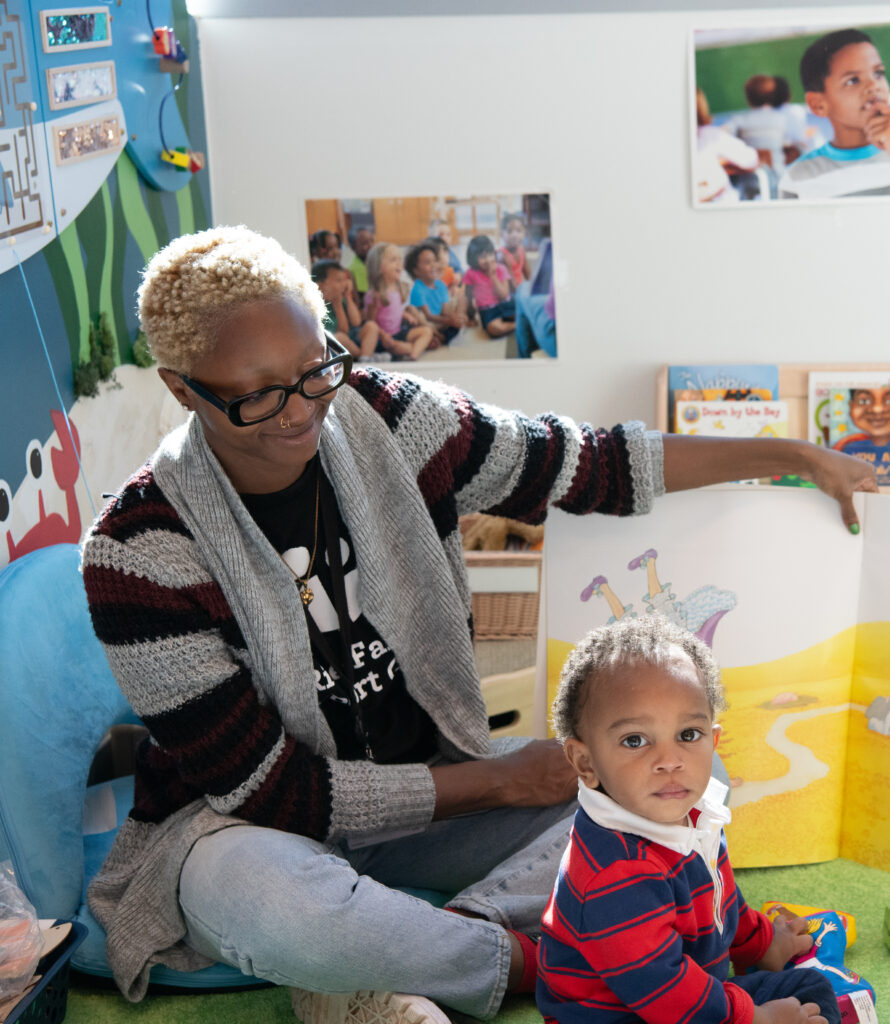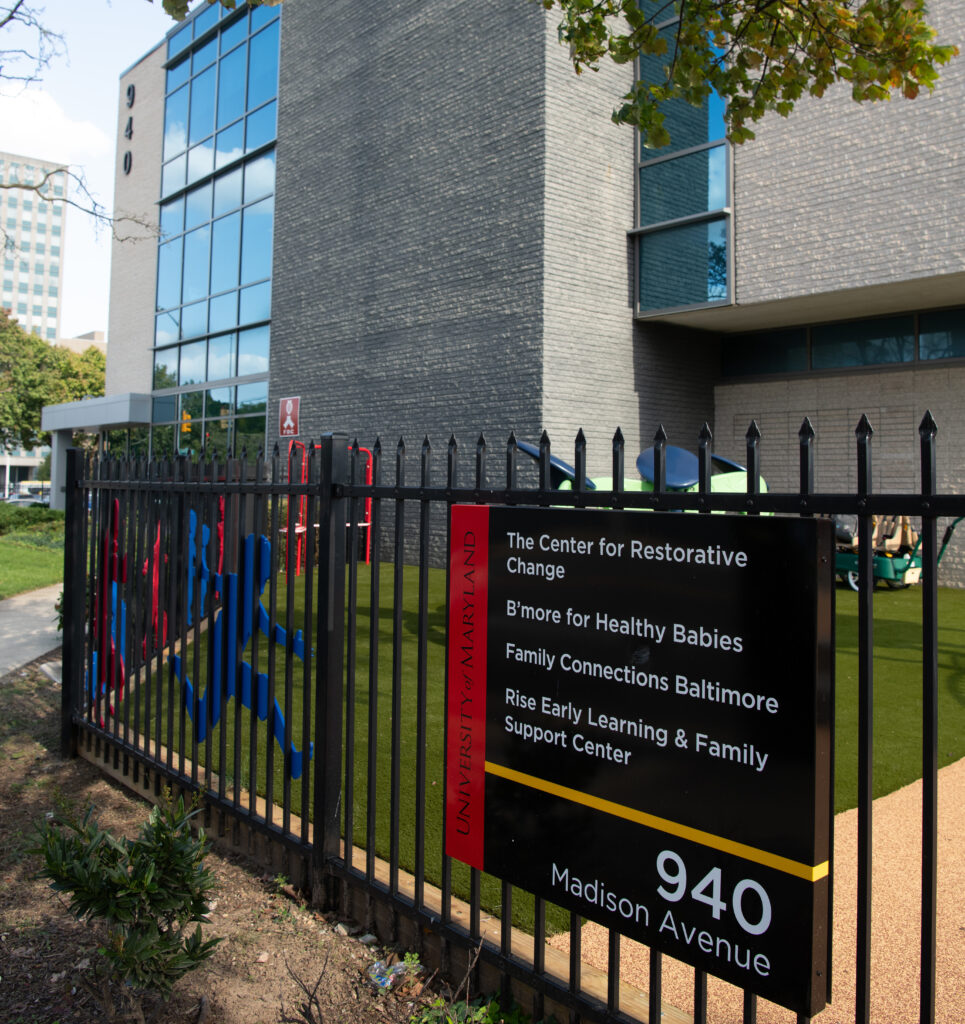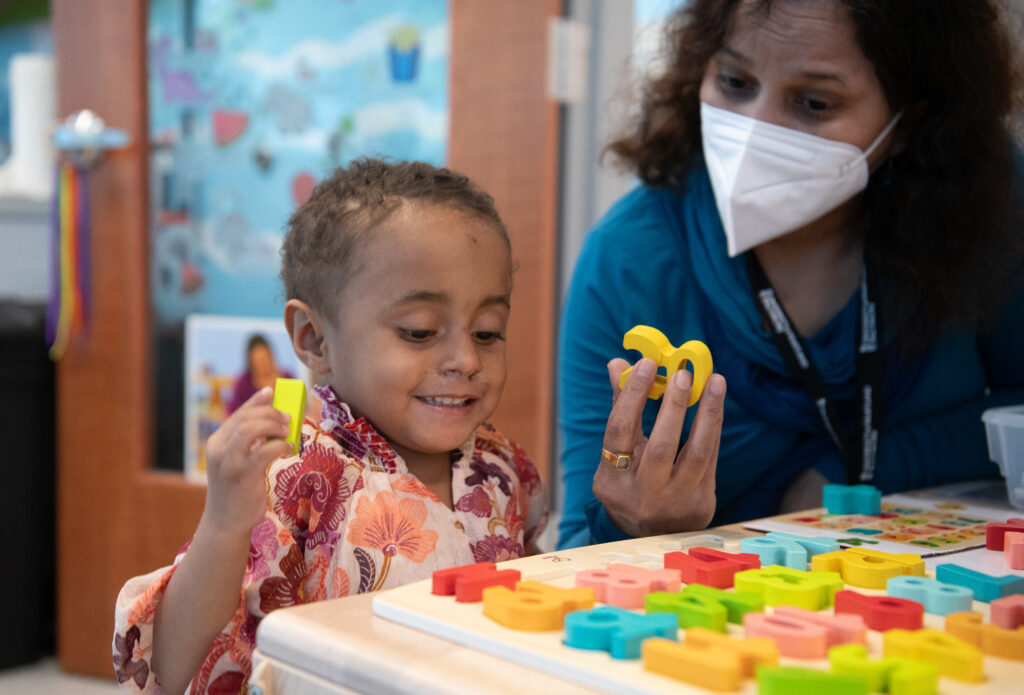Three New Teachers Will Help Families Rise

Three new teachers, Alka Kumar, Sylvaha Peterson and Foyala Reid, joined the Rise Family Support Center this year, and are training and meeting with families to start welcoming them to the center in 2024.
“We’re helping families set up for the future and building that future together,” Sylvaha said.
The center is a safe space where families can come together and access resources as well as strategize to push for system-level change. The three teachers will deliver a classroom curriculum and work with parents and caregivers to assess their needs and refer them for services throughout the community. RISE helps caregivers better understand child development, encouraging positive interactions and setting age-appropriate goals for their children.
“What I like about our program is being a part of a network where we’re not alone in this,” Foyala said. “So even if there’s something that we can’t provide to support our families, then we have somebody that we’re connected with, another service that will help them.”
As well as classrooms for learning the center offers food, space to come together and learn, places for rest and respite care, and spaces to identify common social barriers to overcome together. The teachers are working with families to give them the tools they need to be engaged and advocate for their children when they get to school. All three of the teachers have experience in other educational and preschool environments, but describe their experience at Rise as different.
“We’re not only working with the community but learning from the community,” Alka said. “And that’s important when many families come to us where they might not fully trust that centers like ours are there to help. It’s important to me that we’re working with diverse families, and learning so much from them about their strengths and what they want to achieve.”

The teachers have been visiting people’s homes and meeting with new families who might benefit from their help. “That sense of getting personal, and having a lot more compassion, is so important,” Foyala said. “We’ve got to meet people where they are. We are constantly calling them, emailing and then texting them. We’ve been hosting a lot of different events to build relationships. Tomorrow we’re going to the aquarium. We’re doing all these things to build that trust and get the families familiar with us, with the other kids, with the other teachers.”
Doing intake with new families is more than a bureaucratic chore. “I’ll meet with the families, knowing who their child is in the classroom, and I’ll just discuss their short term goals. You can see them get excited about what they want to achieve,” Foyala said. “It might be planning a vacation, or starting a garden, and I’ll help them build action steps. And they say they feel super supported by us.”
Foyala even helped one young parent through her driving test recently.
“Last Thursday at our picnic, one of my parents said she really wanted a car, and I broke it down by steps,” she said. “Did she have lessons? Did she take a test? And she said she’d tried a few times, and I said, ‘relatable’, because so did I, and I shared a few of the apps I used that helped me to pass the test. We all have goals. Sharing those with someone else’s family builds trust.”
Some of the families might be engaging with Rise because their children are in foster care. “So they feel like being a part of this program will really help them possibly get their children back,” Foyala said. “But it’s not just us telling them, ‘oh, you need this and you’ll be better if you have this.’ They’re telling us ‘these are needs I need to have met right now to even cooperate.’ And we can start there.”

The center is brand new, and families are touring the spaces and feeling excited about bringing their children along.
“There’s this spark,” Sylvaha said. “Like this may be the change that some families are looking for. And they can build from here.”
Working at the center feels amazing in comparison to more traditional preschool social service environments, and fosters a sense of joy and engagement for the teachers as well as the families.
“We’ve all been sharing with each other how cool this feels,” said Alka. “It feels like a dream.”
“It doesn’t feel like a dead end,” Sylvaha said. “It doesn’t feel like, ‘okay, we give you this help one time, or we do this for this one day, or in this singular space.’ So it opens up to feel like we can do anything. We could really make an actual impact, not just be a temporary help, but set them up for the best.”
